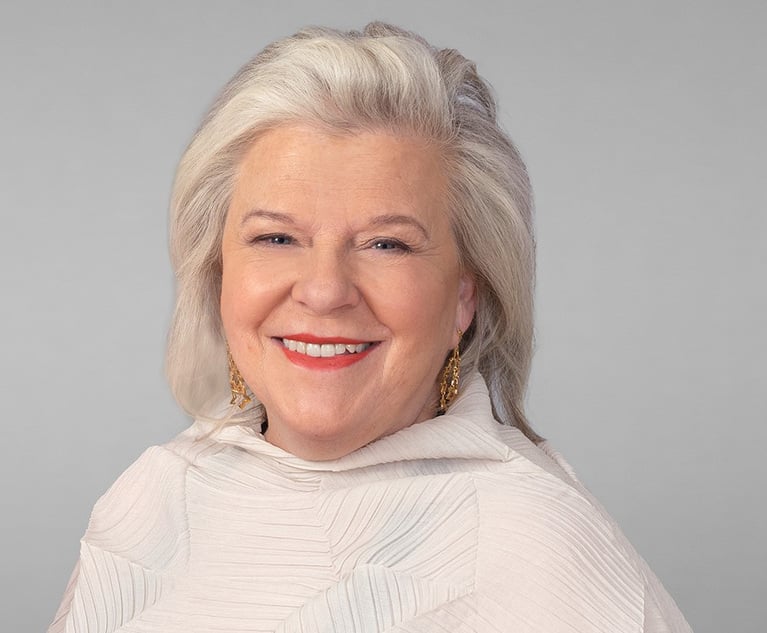 Justin Kan of Atrium.
Justin Kan of Atrium.Atrium to Shut Down Software Business, Refocus on Broader Startup Services
Layoffs totaling at least 90 jobs are expected to unfold in two waves throughout the month of March as Atrium shuts down its software startup.
March 04, 2020 at 02:23 PM
4 minute read
The original version of this story was published on Legal Tech News
This story has been updated with comment from additional sources.
The ongoing saga of hybrid law firm and software company Atrium took another twist this week. Atrium's CEO Justin Kan confirmed to TechCrunch on Tuesday that Atrium's software startup would be shutting down. Meanwhile, the law firm will continue onward.
According to a report released by California's Employment Development Department, the first wave of layoffs is scheduled to go into effect March 9, encompassing 76 jobs. This will be followed by a second wave of 14 layoffs scheduled for March 30.
News of the shutdown comes on the heels of a busy couple of years for Atrium, which announced back in January that it would be losing much of its legal staff as part of a "restructuring" that would see the company expanding outside of legal services to concentrate on a "professional services network" that supported startup founders. Atrium's in-house attorneys were presented with the option of becoming preferred providers inside that network, while a few partners were kept in-house to work with clients on financing and mergers and acquisitions
At the time, Kan pointed to the need among startups for a broader portfolio of services "not only surrounding legal but with questions such as when to hire a sales leader, how to best announce their latest fundraising, how to handle recruiting technical talent in a job seeker's market, and so many other areas that are important to scaling a startup."
That sentiment appeared to mark a departure from the objectives Atrium held upon its launch. During a 2018 conversation with The American Lawyer, Kan said part of the company's first year had been spent turning legal documents into structured data and building "applications that produce useful outputs on top of that." Moving forward, he said that the goal was to "help attorneys spend more of their time on meaningful work and less of their time on crank-turning work."
The company's positioning as a "tech-powered platform providing flat-fee legal services" seemed to resonate with investors. Atrium raised $75.5 million in funding, including from groups such as General Catalyst, Sound Ventures, YC Continuity Fund and Andreessen Horowitz. Now, Kan has told TechCrunch that investors would be getting some of that capital back once startup operations have closed down.
So what happened? Zach Abramowitz, a consultant in the legal technology space, doesn't think Atrium's hybrid model itself is to blame. "I do not think the dual structure had anything to do with it. In fact, having a tech company plus a law firm was, in my opinion, one of the savviest moves Atrium made, as was the $75M funding round. Both gave them an opportunity to build a new kind of law firm/company from scratch," Abramowitz said.
It's possible that Atriums struggles were more in line with the same generic difficulties facing other legal tech companies in the market. To be sure, technology can still be a tough sell at law firms, where the traditional structure offers no clear point of entry for the procurement process to begin. Legal consultant Brett Burney raised the question of whether law firms are even interested in solutions that improve efficiency given their reliance on the billable hour model.
"What happens when you get work done quicker? You don't make as much money," Burney said.
In order for that to change, Burney thinks that clients will have to start demanding that firms pursue innovative, technology-driven means of providing legal services faster. Given the competition firms are encountering from entities like alternative legal service providers and the Big Four, they may be obliged to comply. Regardless, Burney expects to see future attempts at replicating Atrium's hybrid model down the line, since frustration with legal work inefficiencies is unlikely to disappear any time soon.
"There will be more people like Justin [Kan] that will just be so fed up and annoyed and exasperated with the legal world as it stands right now," Burney said
Kan had his own thoughts about what happened at Atrium. He told TechCrunch that Atrium and other companies "did not figure out how to make a dent in operational efficiency."
This content has been archived. It is available through our partners, LexisNexis® and Bloomberg Law.
To view this content, please continue to their sites.
Not a Lexis Subscriber?
Subscribe Now
Not a Bloomberg Law Subscriber?
Subscribe Now
NOT FOR REPRINT
© 2024 ALM Global, LLC, All Rights Reserved. Request academic re-use from www.copyright.com. All other uses, submit a request to [email protected]. For more information visit Asset & Logo Licensing.
You Might Like
View All
Simpson Thacher Launches in Luxembourg With Hires From A&O Shearman, Clifford Chance
3 minute read

A&O Shearman's Former U.S. Co-Chair to Leave Partnership

Trending Stories
Who Got The Work
Michael G. Bongiorno, Andrew Scott Dulberg and Elizabeth E. Driscoll from Wilmer Cutler Pickering Hale and Dorr have stepped in to represent Symbotic Inc., an A.I.-enabled technology platform that focuses on increasing supply chain efficiency, and other defendants in a pending shareholder derivative lawsuit. The case, filed Oct. 2 in Massachusetts District Court by the Brown Law Firm on behalf of Stephen Austen, accuses certain officers and directors of misleading investors in regard to Symbotic's potential for margin growth by failing to disclose that the company was not equipped to timely deploy its systems or manage expenses through project delays. The case, assigned to U.S. District Judge Nathaniel M. Gorton, is 1:24-cv-12522, Austen v. Cohen et al.
Who Got The Work
Edmund Polubinski and Marie Killmond of Davis Polk & Wardwell have entered appearances for data platform software development company MongoDB and other defendants in a pending shareholder derivative lawsuit. The action, filed Oct. 7 in New York Southern District Court by the Brown Law Firm, accuses the company's directors and/or officers of falsely expressing confidence in the company’s restructuring of its sales incentive plan and downplaying the severity of decreases in its upfront commitments. The case is 1:24-cv-07594, Roy v. Ittycheria et al.
Who Got The Work
Amy O. Bruchs and Kurt F. Ellison of Michael Best & Friedrich have entered appearances for Epic Systems Corp. in a pending employment discrimination lawsuit. The suit was filed Sept. 7 in Wisconsin Western District Court by Levine Eisberner LLC and Siri & Glimstad on behalf of a project manager who claims that he was wrongfully terminated after applying for a religious exemption to the defendant's COVID-19 vaccine mandate. The case, assigned to U.S. Magistrate Judge Anita Marie Boor, is 3:24-cv-00630, Secker, Nathan v. Epic Systems Corporation.
Who Got The Work
David X. Sullivan, Thomas J. Finn and Gregory A. Hall from McCarter & English have entered appearances for Sunrun Installation Services in a pending civil rights lawsuit. The complaint was filed Sept. 4 in Connecticut District Court by attorney Robert M. Berke on behalf of former employee George Edward Steins, who was arrested and charged with employing an unregistered home improvement salesperson. The complaint alleges that had Sunrun informed the Connecticut Department of Consumer Protection that the plaintiff's employment had ended in 2017 and that he no longer held Sunrun's home improvement contractor license, he would not have been hit with charges, which were dismissed in May 2024. The case, assigned to U.S. District Judge Jeffrey A. Meyer, is 3:24-cv-01423, Steins v. Sunrun, Inc. et al.
Who Got The Work
Greenberg Traurig shareholder Joshua L. Raskin has entered an appearance for boohoo.com UK Ltd. in a pending patent infringement lawsuit. The suit, filed Sept. 3 in Texas Eastern District Court by Rozier Hardt McDonough on behalf of Alto Dynamics, asserts five patents related to an online shopping platform. The case, assigned to U.S. District Judge Rodney Gilstrap, is 2:24-cv-00719, Alto Dynamics, LLC v. boohoo.com UK Limited.
Featured Firms
Law Offices of Gary Martin Hays & Associates, P.C.
(470) 294-1674
Law Offices of Mark E. Salomone
(857) 444-6468
Smith & Hassler
(713) 739-1250










